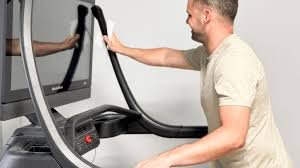Staying active is essential for a healthy life, and there are many ways to keep fit. Whole body vibration machines (WBVMs) are gaining popularity as an alternative to traditional workouts, but how do they compare? Let’s look at the benefits and limitations of both, so you can decide which might be better for you.
What is a Whole Body Vibration Machine?
A whole body vibration machine is a platform that vibrates, causing your muscles to contract and relax quickly. You can stand, sit, or do exercises on the machine to work different muscle groups. Many people use WBVMs for benefits like muscle toning, flexibility, and improved circulation.
What is Traditional Exercise?
Traditional exercise includes familiar workouts like running, lifting weights, cycling, or even bodyweight exercises like push-ups and squats. These exercises target different fitness goals, such as strength, endurance, flexibility, and cardiovascular health, and they can be customized to individual fitness levels.
Comparing the Benefits of Each
1. Muscle Strength and Toning
- Whole Body Vibration Machine: WBVMs engage muscles through rapid contractions. This helps activate multiple muscle groups and can improve muscle tone and strength, especially in the legs, core, and glutes.
- Traditional Exercise: Strength training with weights or bodyweight exercises is one of the most effective ways to build muscle. Lifting weights allows you to control the resistance, which leads to greater muscle mass and strength over time.
Winner: Traditional exercise is better for muscle growth, while WBVMs are ideal for those focused on muscle toning without intense lifting.
2. Cardio and Endurance
- Whole Body Vibration Machine: While a vibration machine can support a light cardio workout when combined with movements like squats or lunges, it generally doesn’t replace activities like running or cycling for a high-intensity cardio workout.
- Traditional Exercise: Traditional cardio exercises, such as jogging, biking, and rowing, are highly effective for building heart health, stamina, and endurance.
Winner: Traditional exercise offers a better cardio workout, as WBVMs aren’t designed for intense cardiovascular exercise.
3. Weight Loss
- Whole Body Vibration Machine: WBVMs can aid weight loss by boosting metabolism and burning calories during and after each session. This low-impact method can be helpful for those who find high-intensity exercise challenging.
- Traditional Exercise: Traditional exercises, particularly cardio like running or HIIT workouts, burn calories faster and are typically more effective for weight loss. Strength training also helps burn calories and build muscle, which increases metabolism.
Winner: Traditional exercise generally provides more effective weight loss, but WBVMs can support weight loss for those who need a gentler approach.
4. Flexibility and Balance
- Whole Body Vibration Machine: WBVMs can improve flexibility and balance by activating stabilizing muscles and increasing joint mobility. Regular use can also help enhance coordination.
- Traditional Exercise: Stretching routines, yoga, and balance exercises are highly effective for flexibility and coordination. These exercises give you more control over stretching specific muscle groups and improving body balance.
Winner: It’s a tie! Both WBVMs and traditional exercises are effective for flexibility and balance, though they approach it in different ways.
5. Bone Density and Joint Health
- Whole Body Vibration Machine: WBVMs have been shown to support bone density by gently applying stress to the bones, which can be beneficial for older adults or people with limited mobility. The vibrations also provide a low-impact option, which is easier on joints.
- Traditional Exercise: Weight-bearing exercises like walking, jogging, or lifting weights are excellent for improving bone density. However, high-impact exercises may not be ideal for those with joint issues.
Winner: For those with joint concerns, WBVMs offer a safe option for bone health, while traditional exercise is a better choice for building bone density in healthy individuals.
Which One is Right for You?
- If you’re short on time or have mobility issues: Whole body vibration machines provide a quick and effective way to activate muscles and improve flexibility without putting strain on the body. They’re also ideal for people who are just starting their fitness journey or have limitations that make traditional workouts challenging.
- If you want intense cardio and strength training: Traditional exercises will give you the full range of benefits needed for strength, endurance, weight loss, and heart health. These workouts are also customizable, so you can adjust intensity as your fitness improves.
Can You Use Both?
Absolutely! Many people find success by combining both WBVMs and traditional exercises. For example, you might start your workout with 10 minutes on a vibration machine to activate muscles and improve circulation, then move to traditional strength or cardio exercises.
Conclusion
Both whole body vibration machines and traditional exercises have their own strengths. WBVMs are ideal for low-impact muscle toning, flexibility, and gentle workouts, while traditional exercise offers a more comprehensive approach for building strength, endurance, and overall fitness. Depending on your fitness goals and limitations, you may benefit from using one, the other, or even both to create a balanced routine that suits your needs.



